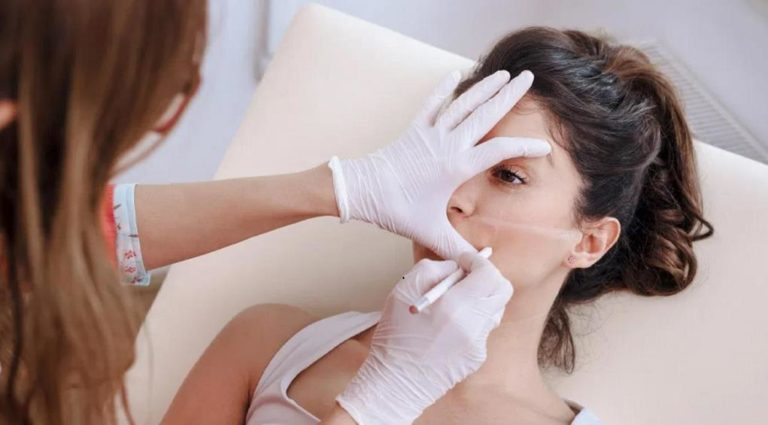If your jaw is making clicking sound when you chew, or if you are experiencing throbbing pain even when breathing, then you may be suffering from shifting or sudden misaligned jaws.
What is Sudden Misaligned Jaw?
A misaligned and uneven jaw can cause serious discomfort as it can affect the way you eat, talk, sleep, and breathe. While there are a multitude of reasons why your jaw hurts, sudden misaligned jaw is a common condition, especially in women between ages 20 to 40. It is often linked to stress, trauma (injury or blow to the face), or dental misalignment. This can cause serious pain such as headaches, ear pain, facial pain, and even tinnitus (noise or ringing in the ears). These pain symptoms are often associated with temporomandibular disorder (TMD).
TMD is a disorder caused by problems in the jaw joint (temporomandibular joint or TMJ), misalignment of upper and lower teeth (overbite or underbite), and facial muscles that control the chewing and movement of the jaw. This is common among people with teeth clenching or grinding problems (bruxism), those who eat a lot of hard food, or who have experienced any type of whiplash-related injury at a younger age.
Misaligned or uneven jaws can also be a result of dental problems such as cavities or gum disease. Also, some people are born with misaligned jaws, while others develop this condition. Whatever the case may be, the pain and discomfort can be substantial. It can also lead to other health conditions. Thus, it is important to have it checked as soon as possible.
In many cases, a misaligned jaw can be treated with physical therapy. For severe cases, it may require corrective treatment like surgery to provide stability to the jaw area and resolve the pain.

Symptoms of Uneven or Sudden Misaligned Jaw
If you are not sure if you should get it checked out, here are some symptoms you need to be on the lookout for:
- Clicking jaw
- Excessive tightness of the jaw
- Pain around the jaw joint
- Pain around the temple
- Pain in back or shoulder
- Popping in ear or tinnitus
- Difficulty speaking or chewing food
- Drooling
Causes of Sudden Misaligned Jaw
Knowing the cause of sudden misaligned jaw can help with finding the appropriate treatment. Below are some of the reasons why this could happen.
Temporomandibular Joint Disorder
TMJ is pretty common; it can be caused by arthritis, jaw injury, chronic bruxism, and certain diseases in connective tissues that affect the temporomandibular joint. This condition can cause pain, especially around the jaw, ears, face, and even the neck and shoulders.
TMJ disorder is treatable. You can provide relief or prevent aggravating it by doing any of the following:
- Avoiding strenuous movement for the jaw
- Over-the-counter pain medications and nonsteroidal anti-inflammatory drugs such as ibuprofen and naproxen can reduce swelling and relieve muscle pain
- Warm and cold packs reduce inflammation around the jaw area
- Wearing of mouth guard or other orthopedic dental appliance can ease pain or discomfort
- Relaxation techniques and stress management can alleviate pain
- Sticking to a soft diet
Bruxism
Teeth clenching or grinding, better known as bruxism, can lead to TMJ disorder. Therefore, bruxism can also result in a sudden misaligned jaw. Common symptoms for this are flat or shortened upper teeth.
Pain associated with bruxism includes stiffness and jaw pain, headache, earache, and injury to the check, tongue, and lips. You will also notice broken teeth or sensitive teeth, ,and “clicking” noise when opening the mouth or moving the jaw joint.
Mysofascial Pain Syndrome
This pain refers to chronic pain around the muscles of the jaw that causes facial pain, clicking or popping noise when using the jaw. People with arthritis, poor posture, and those who suffered injury are most at risk for this condition.
Broken Jaw Caused by Trauma
Accident, assault, fall, or sports-related injuries that cause fracture and dislocation of the jaw joint can lead to a misaligned jaw. Minor fractures can heal on their own, while major injuries to the jaw will require corrective surgery to promote proper healing. Also, a dislocated jaw needs stabilization.
Birth Defects and Teeth Alignment Problems
Some people are born with crooked or “faulty” jaws. This can be treated with surgery. Dentists will also suggest supportive care for the jaw.
Misalignment of teeth can also lead to uneven jaws. Overbite (teeth protruding outwards) and underbite (lower teeth are in front of the upper teeth) can cause the jaw to settle in the wrong position. In these cases, braces or retainers can help to reposition the teeth at the right place and treat the misaligned jaw in the process.

Surgical Procedures for Misaligned and Uneven Jaws
If the jaw misalignment is caused by crooked teeth, then braces and retainers can be used as treatment. Subsequently, there are other cosmetic dentistry procedures used to correct the placement of the teeth. In many cases, however, surgical procedures may be needed.
Correcting jaw position requires reconstructive surgery. The type of surgical procedure depends on the cause of the misaligned jaw. Doctors usually choose from any of the following:
- Jaw wiring – positioning the jaw in the right place or providing support and stability for broken or fractured jaw
- Maxillary osteotomy – corrective procedure for fixing cross or open bites. The upper teeth and the jaw are moved and aligned to the lower teeth and jaw.
- Mandibular osteotomy – corrective procedure for fixing overbite and lower jaw that protrudes. This involves cutting some parts of the back of the mouth to move the lower jack either forward or backward.
- Genioplasty – used for fixing crooked chin; reconstructing the chin (cutting through the chin bone) in the front jaw.
Sudden misaligned jaw is more common than you think. Thankfully, there are plenty of treatment options, no matter the cause.


























